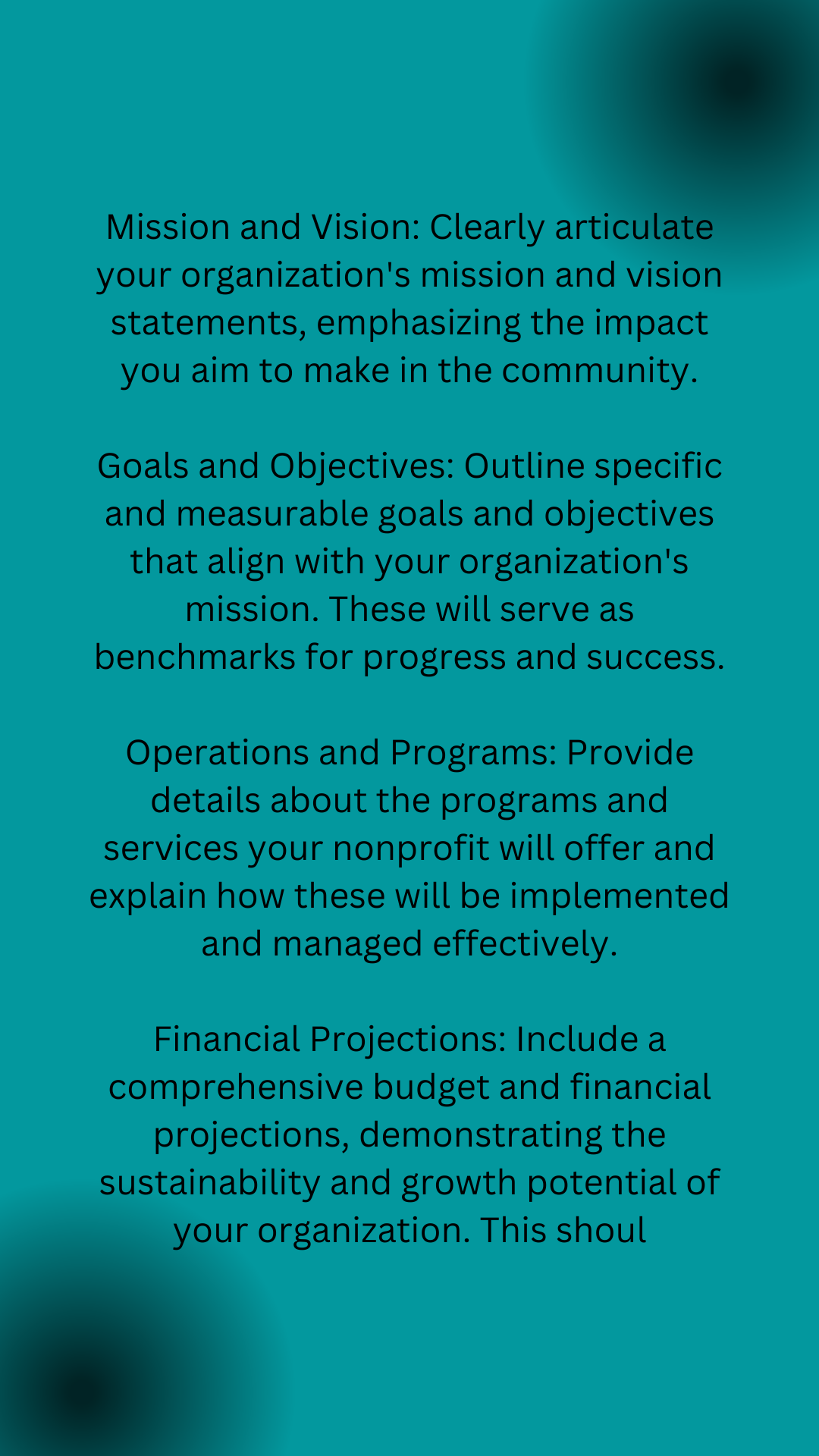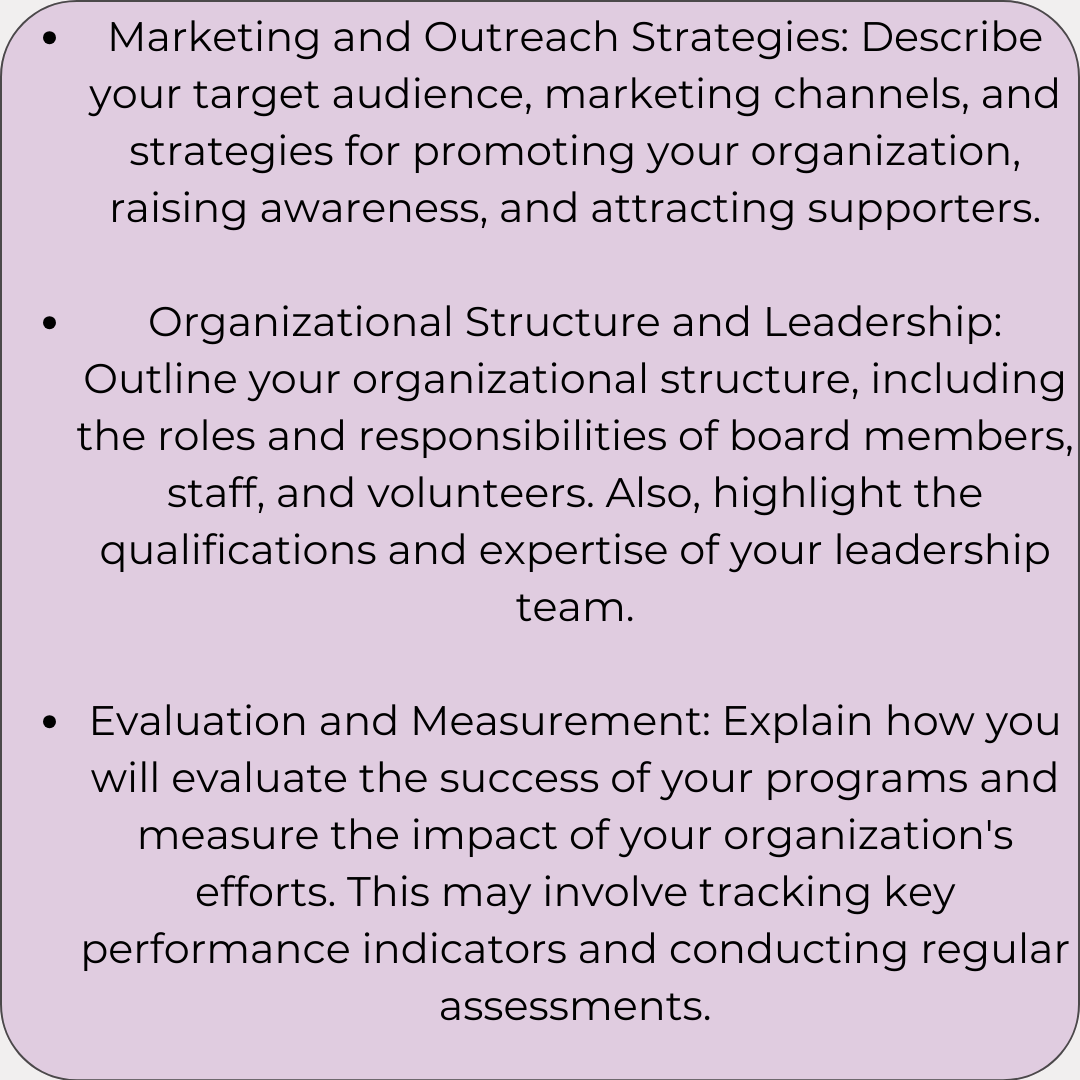How to Start an Oregon Nonprofit

Welcome to our guide on starting a nonprofit in Oregon. Nonprofit organizations play a crucial role in serving communities and addressing social issues. In Oregon, numerous nonprofits are actively working towards making a positive impact. If you're passionate about making a difference and supporting causes that matter, starting a nonprofit in Oregon could be the right path for you. This article will provide you with all the essential information and steps you need to take to establish a successful nonprofit organization in the state.
Key Takeaways:
- Starting a nonprofit in Oregon requires careful planning and dedication.
- Understanding the legal structures and benefits of nonprofit organizations is essential.
- Developing a comprehensive nonprofit business plan is crucial for long-term success.
- Registering your nonprofit with the State of Oregon involves filing the necessary forms and complying with regulations.
- Various fundraising strategies and resources are available to support your Oregon nonprofit's financial stability.
How to Build a Nonprofit in Oregon
Nonprofit organizations play a vital role in making a positive impact on communities across Oregon. Charitable organizations are driven by a common goal: to address societal needs and improve the lives of individuals and families. Understanding the structure and purpose of nonprofit organizations in Oregon is essential for individuals looking to start or support these impactful entities.
Nonprofits in Oregon operate with a mission to serve the public interest. They differ from for-profit businesses as their primary focus is not generating profits for owners or shareholders. Instead, they channel their resources toward fulfilling a specific social or environmental mission. By working towards the greater good, these organizations contribute to the overall well-being of the state and its residents.
The Purpose of Nonprofit Organizations in Oregon
Nonprofit organizations in Oregon exist to address a range of needs. These needs can include, but are not limited to:
- Advocating for social justice and equality
- Providing education and healthcare services
- Supporting the arts and cultural preservation
- Protecting the environment and promoting sustainability
By focusing on these crucial areas, charitable organizations in Oregon serve as catalysts for positive change, working towards building a better future for all.
Legal Structures and Benefits of Nonprofit Organizations in Oregon
Nonprofit organizations in Oregon operate under specific legal structures that ensure transparency, accountability, and compliance with state and federal regulations. The most common legal structure for nonprofits in Oregon is the "501(c)(3)" status, which refers to the section of the Internal Revenue Code that governs tax-exempt organizations.
Obtaining 501(c)(3) status brings various benefits to nonprofits in Oregon, including:
- Exemption from federal and state income taxes
- The ability to receive tax-deductible donations from individuals and businesses
- Access to grants and funding opportunities specifically available to nonprofit organizations
- Enhanced credibility and trust among donors, volunteers, and the community
- Support from the extensive network of nonprofit resources and organizations in Oregon
These benefits provide nonprofits in Oregon with the necessary resources and credibility to carry out their missions effectively.
Key Steps to Start a Nonprofit in Oregon
To start a nonprofit organization in Oregon, there are several key steps that you need to follow. These steps will help you develop a strong foundation and ensure that your nonprofit is set up for success. From developing a mission statement to obtaining necessary licenses and permits, here's a breakdown of the essential steps you need to take:
1. Develop Your Mission Statement
Your mission statement is the essence of your nonprofit. It defines your purpose and communicates your organization's goals. Take the time to craft a clear and compelling mission statement that resonates with your target audience and emphasizes the impact you aim to make in the community.
2. Create a Board of Directors
A board of directors provides governance and guidance to your nonprofit. Choose individuals who are passionate about your mission and bring diverse skills and expertise to the table. Make sure to comply with the legal requirements for board composition in Oregon.
3. File Your Articles of Incorporation
Filing your articles of incorporation with the Oregon Secretary of State is necessary in establishing your nonprofit's legal existence. This document outlines your organization's purpose, structure, and key details. Consult the Secretary of State's website for the specific requirements and forms.
4. Obtain an Employer Identification Number (EIN)
An EIN, also known as a federal tax identification number, is necessary for various nonprofit activities, including opening a bank account and filing tax returns. You can obtain an EIN from the Internal Revenue Service (IRS) through their online application process.

5. Apply for Tax Exempt Status
To be eligible for tax-exempt status, you need to apply for recognition as a tax-exempt organization under section 501(c)(3) of the Internal Revenue Code. This status provides important benefits, including the ability to receive tax-deductible donations. Visit the IRS website for detailed instructions on how to apply.
6. Obtain Necessary Licenses and Permits
The Oregon State Department of Justice handles the incorporation and dissolution of nonprofits in Oregon.
7. Establish Financial Systems
Setting up effective financial systems is crucial for maintaining transparency and accountability. Implement bookkeeping practices, develop a budget, and establish internal controls to ensure proper management of your organization's funds.
File your 990 each year with the IRS.
8. Seek Nonprofit Grants and Resources
Oregon offers various nonprofit grants and resources to support organizations in their missions. Take advantage of these opportunities to secure funding and access valuable resources such as training programs, networking events, and capacity-building initiatives. Research local foundations, government grants, and nonprofit support organizations that align with your cause.
9. Develop a Strategic Fundraising Plan
Fundraising is a vital component of nonprofit sustainability. Develop a strategic fundraising plan that aligns with your organization's mission and leverages a mix of strategies. This can include individual giving, corporate partnerships, grants, events, and online campaigns.
10. Establish Effective Governance and Operational Policies
Strong governance and operational policies are essential for nonprofit success. Develop bylaws, policies, and procedures that outline how your organization will operate, including board responsibilities, volunteer management, and financial controls.
11. Promote Your Nonprofit
Once you have established your nonprofit, it's important to promote your organization and raise awareness about your mission. Utilize various marketing and communication channels, such as social media, websites, and community events, to engage supporters and attract new stakeholders.
By following these key steps and utilizing the nonprofit grants and resources available in Oregon, you can lay a solid foundation for your nonprofit organization and increase your chances of making a meaningful impact in the community.
Creating a Strong Nonprofit Business Plan
A well-structured nonprofit business plan is essential for the success of your nonprofit organization in Oregon. It serves as a roadmap, guiding your organization toward its goals and ensuring clarity in your strategies and operations. Whether you are seeking funding, recruiting board members, or communicating your mission to stakeholders, a comprehensive business plan is crucial.
Components of a Nonprofit Business Plan

By developing a comprehensive and well-structured nonprofit business plan, you will not only attract funders and supporters but also create a solid foundation for the growth and impact of your organization in Oregon.
Benefit of a Strong Nonprofit Business Plan Explanation Attracting Funding A well-developed business plan showcases the financial viability and potential impact of your organization, increasing your chances of securing funding from donors, grants, and other sources.
Effective Decision-Making With a clear plan in place, your organization's leadership can make informed decisions about resource allocation, program development, and strategic partnerships. Board and Staff Guidance A nonprofit business plan guides the board and staff, ensuring that everyone is aligned with the organization's mission, vision, and strategies.
Measure Success By setting specific goals and objectives in your business plan, you can track progress and measure the success of your organization's programs and initiatives. Clarity in Fundraising A well-structured plan helps you articulate your organization's mission and impact to potential donors, making it easier to engage them and secure financial support.
Some more things to consider when building your nonprofit.

Guidance for Creating a Comprehensive Nonprofit Business Plan
When creating your nonprofit business plan, consider the following tips:
- Research and Benchmarking: Conduct thorough research on existing successful nonprofit organizations in Oregon to gain insights into their strategies and best practices. This will help you identify gaps and opportunities for your organization.
- Collaboration and Input: Involve key stakeholders, such as board members, volunteers, staff, and community members, in the planning process. Their input and perspectives will enrich your plan and foster a sense of ownership and commitment.
- Review and Refinement: Continuously review and refine your nonprofit business plan as your organization evolves and adapts to changing circumstances. Regularly assess its effectiveness and make necessary adjustments.
Fundraising for Your Oregon Nonprofit
When it comes to running a successful nonprofit organization in Oregon, fundraising plays a crucial role. By securing financial resources, you can support your mission, expand your impact, and ensure the sustainability of your initiatives. In this section, we will explore various fundraising strategies and resources available for Oregon nonprofits.
1. Nonprofit Grants in Oregon
One excellent source of funding for Oregon nonprofits is through nonprofit grants. These grants are specifically designed to support organizations that are dedicated to making a positive difference in the community. There are many foundations, corporate philanthropic programs, and government agencies that offer nonprofit grants in Oregon.
Grant Provider Grant Amount Grant Focus Oregon Community Foundation $5,000 - $100,000 Arts and Culture, Education, Environment, Health and Human Services Meyer Memorial Trust Varies Equity, Housing, Education, Environment Ford Family Foundation Varies Education, Environment, Health, Social Services
These are just a few examples of grant providers in Oregon. It's essential to research and identify grants that align with your nonprofit's mission and goals. Be sure to review the eligibility criteria and application requirements for each grant opportunity.
2. Individual Donations
Individual donations are another critical source of funding for Oregon nonprofits. Cultivating relationships with individual donors who believe in your cause can lead to long-term financial support. Consider implementing fundraising campaigns, setting up online donation platforms, and organizing donor appreciation events to encourage individual contributions.
3. Corporate Sponsorships
Partnering with corporations can provide significant financial support for your nonprofit. Seek out local businesses that align with your mission and values and develop mutually beneficial partnerships. Corporate sponsorships can include monetary contributions, in-kind donations, or even employee volunteer programs.
4. Fundraising Events
Organizing fundraising events is a creative way to engage with your supporters while raising funds. Consider hosting galas, auctions, charity runs, or community outreach events. These events not only generate revenue but also help raise awareness about your nonprofit's mission and attract new donors.
"Fundraising is not just about asking for money. It's about sharing your passion, connecting with others, and inspiring them to join your cause." - Nonprofit Leader
Remember, successful fundraising requires careful planning, effective communication, and a compelling case for support. Utilize the wealth of nonprofit resources in Oregon to enhance your fundraising efforts and maximize your impact in the community.
Managing Your Oregon Nonprofit
Running a nonprofit organization in Oregon requires effective management and oversight to ensure its success and ability to fulfill its mission. From hiring the right staff to governing your board and managing volunteers, every aspect of nonprofit operations plays a crucial role in achieving your organizational goals.
Hiring Staff
When it comes to hiring staff for your Oregon nonprofit, it's important to find individuals who align with your mission and possess the skills necessary to contribute to your organization's growth. Advertise job openings on relevant nonprofit job boards or local community platforms to attract candidates passionate about supporting your cause and who possess the required expertise. Conduct thorough interviews and reference checks to ensure you hire the best candidates for your nonprofit.
Board Governance
Your nonprofit's board of directors plays a critical role in providing guidance, strategic planning, and financial oversight. Establish clear expectations for board members and outline their responsibilities in your organization's bylaws. Hold regular board meetings to review financial reports, discuss organizational goals, and address any challenges. Encourage board members to actively participate in fundraising efforts and leverage their networks to support your nonprofit's mission.
Volunteer Management
Volunteers are the lifeblood of many nonprofit organizations in Oregon. Effectively managing volunteers can maximize their contributions and enhance your organization's impact. Develop a volunteer program that offers meaningful opportunities for individuals to engage with your mission. Provide clear guidelines, training, and ongoing support to ensure volunteers feel valued and empowered to make a difference. Foster a positive and inclusive volunteer culture that inspires dedication and loyalty.
Compliance with Legal and Financial Responsibilities
As a nonprofit organization in Oregon, it's essential to adhere to legal and financial requirements. Stay updated on state and federal regulations that apply to your nonprofit's operations. Maintain accurate financial records and ensure responsible financial management. File tax returns and annual reports on time to maintain your organization's good standing. Seek legal advice when necessary and consult with professionals familiar with nonprofit law.
Task Key Considerations Hiring Staff
- Align candidates with your organization's mission
- Advertise job openings on nonprofit job boards
- Conduct thorough interviews and reference checks
Board Governance
- Establish clear expectations for board members
- Hold regular board meetings to review financial reports and discuss goals
- Encourage active participation in fundraising efforts
Volunteer Management
- Develop a comprehensive volunteer program
- Provide clear guidelines, training, and ongoing support
- Foster a positive and inclusive volunteer culture
Compliance with Legal and Financial Responsibilities
- Stay updated on state and federal regulations
- Maintain accurate financial records
- File tax returns and annual reports on time
Building Community Partnerships for Collective Impact
Collaboration is key when it comes to maximizing the impact of your nonprofit organization in Oregon. By forming strategic partnerships with other organizations, businesses, and community stakeholders, you can combine resources, share expertise, and work together towards a common goal.
Building community partnerships allows you to tap into a vast network of nonprofit resources in Oregon. These resources can provide valuable support, guidance, and access to funding opportunities, helping your organization thrive and make a difference in your community.
Benefits of Community Partnerships
Partnering with other organizations and businesses can bring a multitude of benefits to your nonprofit, including:
- Enhanced resources: By pooling resources with your partners, you can access a wider range of expertise, funding, and in-kind contributions, enabling you to expand your programs and services.
- Increased visibility: Collaborating with well-established organizations and businesses can help raise the profile of your nonprofit, attracting more attention, support, and partnerships.
- Shared knowledge: Community partnerships provide opportunities for knowledge exchange, allowing you to learn from the experiences and best practices of your partners, ultimately strengthening your organization.
Finding Community Partners
There are various ways to find and connect with potential community partners:
- Attend networking events: Participate in local nonprofit events, conferences, and workshops to meet like-minded organizations and individuals who share your mission and can offer their support.
- Research online: Utilize online resources to find nonprofit directories and directories of businesses in Oregon that are actively involved in corporate social responsibility and community engagement.
- Reach out: Take the initiative to reach out to potential partners directly, introducing your organization and explaining how a partnership can benefit both parties.
“Alone we can do so little; together we can do so much.” - Helen Keller
Maximizing the Impact of Partnerships
Once you have established community partnerships, it is crucial to cultivate and maintain them effectively. Here are some tips to maximize the impact of your partnerships:
- Define clear goals and expectations: Communicate your organization's mission, objectives, and the specific outcomes you hope to achieve through the partnership.
- Create win-win opportunities: Ensure that the partnership is mutually beneficial by identifying opportunities for shared growth, resources, and positive impact.
- Regular communication and collaboration: Foster open lines of communication and frequent collaboration with your partners to build trust, maintain alignment, and effectively address challenges.
Nonprofit Directory Oregon
Utilize the nonprofit directory in Oregon to connect with potential partners and access valuable resources for your organization. This directory provides an extensive list of nonprofit organizations in Oregon, categorized by their areas of focus and mission.
Nonprofit Name Mission Location Nonprofit A Empowering youth through education and mentorship programs Portland Nonprofit B Providing affordable housing and support services to low-income families Eugene Nonprofit C Promoting environmental sustainability and conservation efforts Salem
Starting and running a nonprofit in Oregon requires careful planning, dedication, and resourcefulness. By following the steps outlined in this article and utilizing the available nonprofit resources in Oregon, you can make a lasting impact on your community and support the mission of your nonprofit organization.
Starting a nonprofit in Oregon is not just about filling out paperwork and obtaining necessary licenses. It's about understanding the purpose and goals of your organization, creating a strong business plan, and effectively managing your nonprofit's operations.
Moreover, by actively engaging with the nonprofit community and building partnerships, you can amplify your impact and reach. Collaborating with other organizations, businesses, and community stakeholders allows you to pool resources, share knowledge, and maximize the positive change you can bring to the community.
Remember, running a successful nonprofit in Oregon is an ongoing process. Stay connected with the evolving landscape of nonprofit resources, continue building your skills, and adapt to the changing needs of your community. With determination and a passionate team, your nonprofit can thrive and make a significant difference in the lives of those you serve.




